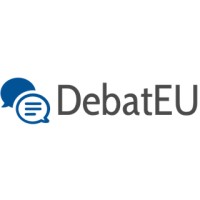Despite the activities of the EU and national institutions as well as intermediate institutions and actors, research as well as opinion surveys diagnose a growing gap between what has been termed “EU elites” and EU citizens. The EU has a legitimacy problem, support rates have been decreasing during the peak of the financial crisis (see the respective Eurobarometer data) and despite the economic situation improving, votes for populist, extremist, anti-EU and anti-democrat parties and movements are on the rise throughout the EU. At the same time, the Europeanisation of politics and decision making continues to impact and transform the national democratic systems of the member states.
Our network takes stock of this situation. The primary aim is to open debate and get into a dialogue on the EU with citizens, students, academics and EU practitioners and debate on the problems of the EU.
The core of the network consists in citizen focus group discussions with EU Studies students that the network members organise in their home countries – three focus group discussions per country and 18 altogether in three years, with six to eight participants. We conduct three series of focus groups with students in the six participating countries.
Discussing with EU Studies students means that we discuss with a group of citizens that is relatively well informed about the EU and, as according to quantitative findings, supposedly Europhile. This choice allows us to diagnose the problem of the EU as they are seen by a social group who is supposed to be a pro-EU avant-garde, and hence consists of key actors for EU development.
The core of the network consists in citizen focus group discussions with EU Studies students that the network members organise in their home countries – three focus group discussions per country and 18 altogether in three years, with six to eight participants. We conduct three series of focus groups with students in the six participating countries.
Discussing with EU Studies students means that we discuss with a group of citizens that is relatively well informed about the EU and, as according to quantitative findings, supposedly Europhile. This choice allows us to diagnose the problem of the EU as they are seen by a social group who is supposed to be a pro-EU avant-garde, and hence consists of key actors for EU development.
Altogether our project aims to enhance the knowledge on citizen involvement and deliberations on the EU reforms at various levels.
Link to the report with key findings here.
Period: September 2020 - August 2024
Coordinators: Ruzha Smilova, Kaloyan Velchev
Financing Organisations: Erasmus + Programme of the European Union
Leading Partner: Fulda University of Applied Sciences
Partners: Institute inter.research e.V., Sciences Po Lyon, Université de Lyon II, University of Zagreb, University of Ljubljana, University of Helsinki, Centre for Liberal Strategies
